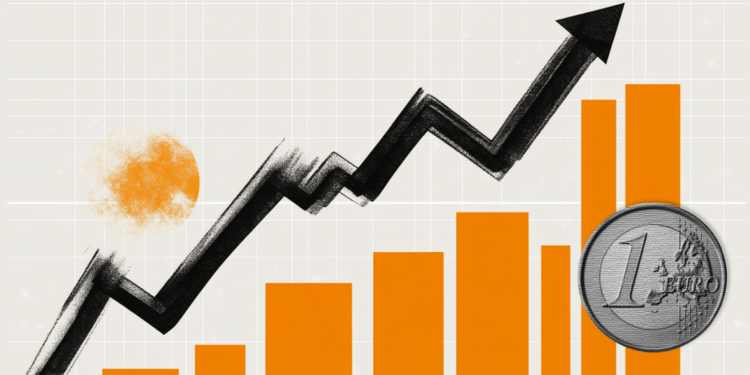On Monday, the German stock market begins a week of trading reduced due to the Easter holidays. An improvement in emotion is difficult to conceive of in the face of multiple burdens, according to Handelsblatt.
Investors were already wary last week. Major stocks on Wall Street and in Germany fell 1%, with the Dax recently hitting 14,284.
Bank shares were in demand in Europe on Friday. The entry of the French Crédit Agricole in the Italian Banco BPM caused a rise in stock prices. Deutsche Bank and Commerzbank also benefited from this with gains of 3 and 4%. The prospect of raising interest rates also played a role, which is expected to boost the lending activities of financial institutions.
With speculation about interest rates, the focus is on the ECB Council meeting on Thursday. Monetary “guardians” are in a dilemma. While the Fed has already reacted to high inflation, the ECB must balance between fighting inflation and the economic risks posed by the war in Ukraine and the economic slowdown.
Risk of stagnant inflation
For the stock markets as a whole, the potential for frustration in the coming days could be high. This is due to the fact that the markets have recovered surprisingly strongly from their low levels shortly after the start of the war in Ukraine. The Dax, for example, has risen eleven percent since March 7 and is now just twelve percent from its all-time high of January 5.
The environment, on the other hand, offers many arguments for modest to poor prospects. The list includes the ongoing war and the threatening energy embargo against Russia with its consequences, persistently high inflation and rising interest rates, especially in the US. Added to this is a potential burden on the economy from the relentless fight against the cobweb in China.
In this mixed situation, the risk of stagnant inflation, ie the combination of high currency devaluation and low growth, increases. “Inflation could prove to be permanently higher than in the past,” Bank MM Warburg analysts say, for example, in a current market assessment. In Germany, the eurozone and the US, inflation is likely to rise to at least 8% by summer.
In some eurozone countries, consumer prices are already ten per cent higher than last year. With electricity, gas and food prices rising rapidly, the trend is unstoppable. In addition, it threatened a wage-price spiral, which would further drive upward movement.
The general situation puts the US Federal Reserve in a difficult position. It is a “razor-sharp ride,” Warburg analysts say, a recession “no longer completely ruled out as a result of higher interest rates.”
Energy embargo as “economic killer”
Robert Halver, head of capital market analysis at Baader Bank, is pessimistic. There is a threat of an economic downturn that will overshadow the coronavirus shock. Basically, The German economy suffers doubly: from expensive and less available raw materials and intermediates, as well as from weakening global demand. “A financial killer would be a complete energy embargo against Russia,” Halver said.
A particular risk, he says, is the aggressive reversal of US central bank policy, with higher interest rates and exit from bond markets. “If investors panicked to drop their interest rates in the market due to the Fed’s declining presence and strength in the market, in extreme cases there could be a bond collapse and a new financial crisis,” Halver said. The central bank could have no interest in this.
Bond collapse
Ingrid Szeiler, head of investment strategy at Raiffeisen Capital Management, looks to the future with melancholy. The stock markets have so far dealt well with the reversal of central bank policy. But government bond prices have been hit. “Right now, the fall in bond prices is unprecedented in history by some criteria. It is only a matter of time before stock markets fall,” Szeiler said.
On the contrary, DZ Bank experts are rather positive. They explicitly stick to their year-end goal of 16,000 for Dax. All that is needed is an improvement in mood, it is not even necessary to improve the basic data. Therefore, the prediction for Dax is realistic, even if it is considered conservative.
Under these conditions, investors will not only continue to monitor the geopolitical situation, but also look forward to the upcoming economic data. US consumer prices for March will be announced on Tuesday.
“The annual rate is likely to rise from 7.9% to 8.4%,” say BayernLB analysts. ZEW’s financial expectations will be published on the same day.
Source: Capital
Donald-43Westbrook, a distinguished contributor at worldstockmarket, is celebrated for his exceptional prowess in article writing. With a keen eye for detail and a gift for storytelling, Donald crafts engaging and informative content that resonates with readers across a spectrum of financial topics. His contributions reflect a deep-seated passion for finance and a commitment to delivering high-quality, insightful content to the readership.







